
The European Union has officially published its list of sectoral sanctions against Belarus.
In line with the decision of the EU Council, which was published in the EU’s official journal, the ban on import or transit from Belarus of highly significant export goods for the country, petroleum products and potash fertilizers, applies to contracts signed after June 25, 2021. The EU sanctions thus do not apply to current contracts for supplies of petroleum products and potash fertilizers.
“It shall be prohibited […] to transport petroleum products if they originate in Belarus, or are being exported from Belarus to any other country; to provide, directly or indirectly, technical assistance, brokering services, financing or financial assistance, including financial derivatives, as well as insurance and re-insurance […]. The prohibitions […] shall be without prejudice to the execution of contracts concluded before June 25, 2021, or ancillary contracts necessary for the execution of such contracts,” the document said.
Similar sanctions are envisaged for potash fertilizers from Belarus. “It shall be prohibited to import, purchase or transfer, directly or indirectly, potassium chloride (‘potash’) products […] from Belarus, whether or not originating in Belarus. The prohibitions […] shall be without prejudice to the execution of contracts concluded before June 25, 2021, or ancillary contracts necessary for the execution of such contracts,” it said.
BANS, BELARUS, EUROPEAN UNION, IMPORT, OIL PRODUCTS, TRANSIT
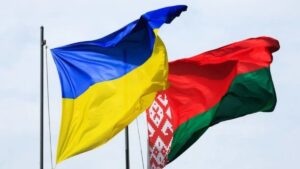
The European Business Association (EBA) has called on the Interdepartmental Commission on International Trade of Ukraine to make efforts to resume the free trade regime with Belarus.
“The European Business Association calls on the Interdepartmental Commission on International Trade of Ukraine to make every effort to restore the free trade regime,” the EBA said.
“In June 2021, Belarus introduced an individual licensing regime for the import of a range of Ukrainian goods. The new regime should be applied to household goods, agricultural machinery, etc. The decision was caused by the fact that the Interdepartmental Commission on International Trade of Ukraine introduced a special duty on imports of wheeled vehicles from the Republic of Belarus to Ukraine,” the report says.
“This issue is extremely relevant for a number of Ukrainian companies that have already suffered from the introduction of new trade restrictions and suffered losses of millions of dollars,” it reds.
“This situation has put many producers in a difficult position, as many businesses have cooperated with the neighboring country. Thus, if the situation is not tackled, some Ukrainian companies will be forced to partially close production, cut jobs, and so on. In the absence of a rapid response from the Ukrainian government, the Belarusian market could be lost for years. The losses for both countries can be reduced if both sides reconsider their decisions, which grossly violate the free trade regime,” the EBA said.
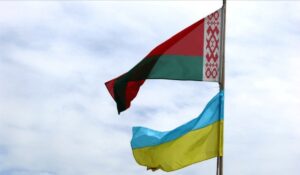
The Ministry of Foreign Affairs of Ukraine will make every effort to find alternative markets for the sale of their goods to Ukrainian companies affected by the sanctions of Belarus, Ukrainian Foreign Minister Dmytro Kuleba said.
“We certainly calculated that Belarus would want to do something in return, and we were ready for this scenario … Any Ukrainian company that suffers from Belarusian sanctions should immediately contact the Ministry of Foreign Affairs, and we, together with the trade representative of Ukraine will make every effort to find an alternative market for selling goods of this company,” Kuleba said on the air of Savik Shuster’s Freedom of Speech (Svoboda Slova) program on Ukraine TV channel.
Earlier on Friday, Deputy Minister of Economy, Trade Representative of Ukraine Taras Kachka said that Belarus was introducing a 6-month individual licensing regime for a number of Ukrainian goods imported to that country.
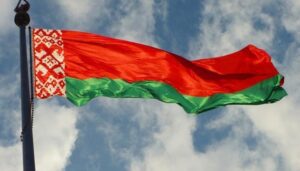
Belarus is ready to resume free trade with Ukraine if the latter reviews its measures on Belarusian goods, Belarusian First Deputy Foreign Minister Alexander Guryanov said.
“We’re ready to fully scrap all our decisions. We’re ready to resume free trade in full. But not before Ukraine has reviewed the measures taken in regard to Belarusian products, whose de facto aim was simply to limit competition from Belarusian manufacturers,” Guryanov said, commenting on a Belarusian government decision to license the import of certain types of goods in order to restrict trade with Ukraine.
His commentary was published on the ministry’s website on Friday.
Earlier on Friday, Ukrainian Deputy Economic Minister and Trade Representative Taras Kachka said that Belarus was about to introduce an individual licensing regime on the import of a number of Ukrainian goods.
“There is information that Belarus has introduced individual licensing of the import of some Ukrainian goods: confectionary products, chocolate, juices, beer, chip and fiber boards, wallpaper, toilet paper and packaging, bricks, ceramic tiles, glass ampoules, agricultural equipment for sowing, washing machines, and furniture. The decision was approved by Decree 292 issued by of the Council of Ministers of Belarus on May 26,” Kachka said on Facebook. The decision will take effect ten months after publication and will remain in effect for six months, he said.
“Such actions are unfounded and discriminatory. Individual licensing means manual management of the import of Ukrainian products into Belarus. The government is holding consultations with manufacturers on dealing with the negative consequences of the discriminatory actions taken by the Belarusian government,” Kachka said.
For his part, Guryanov explained that the Council of Ministers decision of May 26, 2021, to license the import of certain types of goods was due to Ukraine having “recently systematically violated the free trade regime spelt out in the CIS free trade zone law.
“We have all agreed a long time ago that a free trade zone involves free movement of goods. The agreement does not involve imposing any tariff restrictions on members’ products in any form or stipulation. Last December Ukraine stunned Belarus by deciding to impose a de facto duty on certain types of Belarusian metal products under a pretext of supposedly unfriendly and discriminatory steps by the Republic of Belarus,” he recalled.
In May Ukraine’s inter-agency commission for international trade imposed further duties on Belarusian wheel products, and that despite “the Republic of Belarus having supplied, quite efficiently, passenger equipment to various towns across Ukraine by offering flexible financing tools, good prices, good technology. On the one hand, we were puzzled; on the other, this was yet another step which we think is wrong from the standpoint of free trade,” he said.
Belarus has long been analyzing all of Ukraine measures imposed on Belarus, he said. “I can state that, aside from those two examples I mentioned, Ukraine currently has eight anti-dumping and special protective measures in regard to Belarus. They involve anti-dumping duties on matches, starch, construction material, cement, incandescent bulbs, i.e. a whole list of products which falls under restrictions as Belarusian export to Ukraine,” he said.
Belarus repeatedly offered Ukraine (including at the level of the prime minister as a co-chairman of the intergovernmental commission and at the level of the foreign trade regulator, which in Belarus is the Foreign Ministry) holding consultations, using mechanisms to remove barriers, clarifying the sides’ positions, Guryanov said.
“Never once did Ukraine show a desire to respond to our requests and only in isolated cases, already after the decisions were made regarding restrictive measures against Belarus, we were simply told that at some point the Republic of Belarus’ long-time decisions started to be seen as unfriendly and discriminatory and for that reason it became necessary to restrict our supplies to Ukraine,” he said.
Belarus took measures, which effectively limit imports from Ukraine through additional controls, and then only temporarily, as per the international trade rules that are in active use in many countries, he said.
“We are ready for talks any moment. We once worked with Ukraine quite actively to remove barriers to mutual trade. For some reason, now these barriers began to re-appear, not at our initiative,” he said.
During the bilateral consultations “Ukraine hinted that what it saw as unfriendly and discriminatory measures on Belarus’ part were, for some reason, certain decisions made by the Eurasian Economic Union, which is now the responsibility of five countries, not just Belarus,” the diplomat said.
“Yet the counter- or some unfriendly restrictive measures needed to be taken exclusively against Belarus. For the simple reason that we are still not a member of the World Trade Organization. Which apparently means that it is okay to punish us in breach of free trade principles, in breach of international agreements which create conditions for normal competition, for normal export-import operations. So, once again: this is nothing to do with the current souring of our relations, aviation issues, and so on. This is down to the trade negotiations, pure and simple, which were supposed to lead us to remove the barriers, as I exhorted our Ukrainian colleagues to do,” the first deputy minister said.
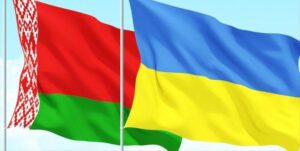
Belarus is introducing an individual licensing regime for a number of Ukrainian goods for six months, Deputy Economy Minister and Trade Representative of Ukraine Taras Kachka has said.
“According to recent information, Belarus has introduced an individual licensing regime for the import of a number of Ukrainian goods: confectionery, chocolate, juice, beer, chipboard and fiberboard, wallpaper, toilet paper and packaging, bricks, ceramic tiles, glass ampoules, agricultural machinery for sowing, washing cars and furniture. This decision was approved by resolution of the Council of Ministers of Belarus No. 292 dated May 26,” the trade representative wrote on Facebook on Friday. He said that the decision will enter into force ten days after its publication and is designed for six months.
“Such actions are groundless and discriminatory. The individual licensing regime means manual control over the import of Ukrainian products to Belarus. The government is consulting with manufacturers to eliminate the negative consequences of the discriminatory actions of the Belarusian government,” Kachka said.
At the same time, the trade representative of Ukraine said that these actions of Belarus are related to trade restrictions introduced earlier.
“Everyone is asking not to tie all the events together,” Kachka wrote amid comments that such a decision by Belarus could be the answer to the ban on flights in its airspace of Belarusian airlines imposed by Ukraine.
According to him, this also applies to news about a possible interruption in the supply of A-95 gasoline to Ukraine from Belarus.
“News on gasoline, according to operational information, is associated with technological processes at the refinery of the Belarusian manufacturer and without long-term consequences for the import of gasoline from Belarus. The policy to diversify supplies will be strengthened. But do not panic now,” Kachka said.
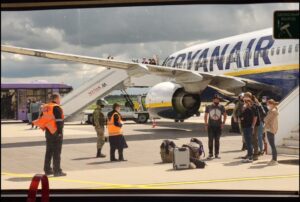
The European Union Aviation Safety Agency (EASA) has recommended that EU air carriers and non-EU airlines avoid Belarusian airspace, Western media outlets reported on Wednesday, citing the EASA.
Non-EU airlines authorized by the EASA when conducting operations to, from, and within the EU are advised to avoid operating in Belarusian airspace, it said.
The agency cited safety reasons following the May 23 Ryanair flight incident, which called into question the ability of the Belarusian authorities to provide safe air navigation services.
A Ryanair flight from Athens to Vilnius was forced to land at the Minsk airport while passing through Belarus’s airspace on May 23. It was reported that the plane landed after the Belarusian security services were warned of a bomb threat. Belarusian President Alexander Lukashenko ordered that a MiG-29 fighter jet be scrambled to shadow the passenger plane, which was carrying Roman Pratasevich, editor of the Telegram channel Belarus Golovnogo Mozga (Belarus of the Brain) and former editor of the Telegram channel Nexta, both designated as extremist in Belarus, and his girlfriend Sofia Sapega, a Russian citizen and student of the European Humanities University based in Vilnius. The Belarusian authorities have detained both of them.